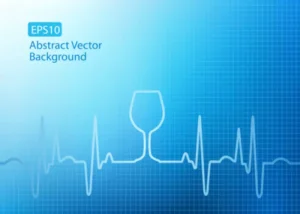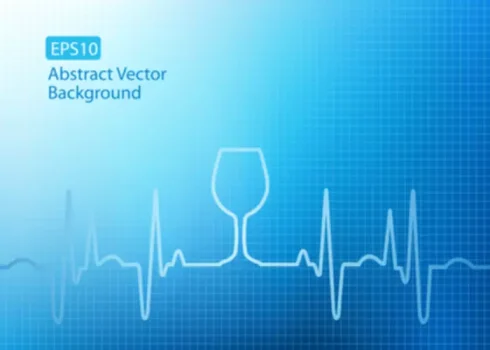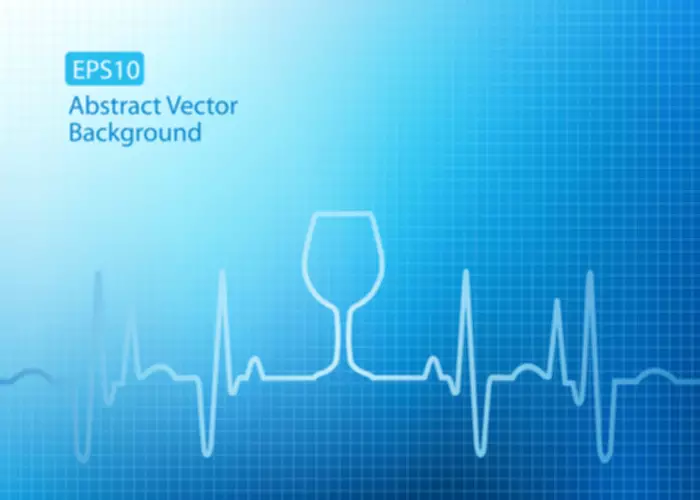
One of the main medical texts that are used by mental health professionals to diagnose addiction is the Diagnostic and Statistical Manual of Mental Disorders (the DSM), which is currently in its fifth edition. People used to believe that addiction only happened in certain areas, like in inner cities, or among specific groups of people, like those who were down and out. But addictions can happen anywhere, from college campuses to rural and suburban towns.
More on Substance Abuse and Addiction
Substance use is a broad term that encompasses every instance of using harmful substances such as alcohol, drugs, nicotine, cannabis, or prescription medications. Substance use disorder, however, is a medical condition that refers specifically to problematic use of these substances, to the extent that the person experiences negative consequences to several areas of their life. Addiction Resource is an educational platform for sharing and disseminating information about addiction and substance abuse recovery centers. Addiction Resource is not a healthcare provider, nor does it claim to offer sound medical advice to anyone. Addiction Resource does not favor or support any specific recovery center, nor do we claim to ensure the quality, validity, or effectiveness of any particular treatment center.
- To reiterate, the DSM-5 dropped the categories of “substance dependence” and “substance abuse,” and so the claim that substance abuse disorder is the preferred term for drug addiction is inaccurate.
- Physiological dependence is very common and can occur with many different kinds of substances, including those considered to be medications.
- A recent study supporting many of the conclusions drawn by Smith and Farah (2011) also reported significant but small effects of amphetamine and methylphenidate on short-term episodic memory, as well as moderate effects on delayed episodic memory (Ilieva et al., 2015).
- Substance abuse occurs with the excessive use or misuse of a drug beyond its intended purpose or prescription.
Opioids: Understanding Addiction Versus Dependence
Although some of these side effects may be seen as beneficial in the short-term (e.g., wakefulness, increased physical activity), it is unclear whether regular, long-term misuse results in persistent disruptions within these or other domains of functioning. In conclusion, despite the ethical, medical, and legal ramifications of prescription stimulant misuse, these medications continue to be misused primarily for cognitive enhancement, and secondarily for recreational purposes (Weyandt et al., 2013). To adequately address the empirical question of whether prescription stimulants such as Adderall truly enhance cognitive functioning, double-blind, placebo-controlled studies with healthy adults are needed. In addition, it is critical that potential moderators (e.g., baseline cognitive functioning) of the effects of stimulants on performance be considered in future studies. In summary, preliminary empirical evidence supports that individuals with and without ADHD may receive small to moderate cognitive benefits from taking prescription stimulant medications in the areas of working memory, response inhibition, processing speed, and delayed memory. The mechanisms explaining neurocognitive enhancement, however, are less understood.
Substance Abuse
Those with moderate to severe alcohol use disorders generally require outside help to stop drinking. This could include detoxification, medical treatment, professional rehab or counseling, and/or self-help group support. Alcohol abuse was defined as a condition in which a person continues to drink despite recurrent social, interpersonal, health, or legal problems as a result of their alcohol use.
Understanding The Dependence Vs. Addiction Debate
Findings from this review also highlight the need for a more thorough understanding of the effects of repeated administration of prescription stimulants, as opposed to single dose administrations of stimulants. Future research that explicitly examines repeated drug administrations, accounting for timing of dose, is warranted. Only one review (Repantis et al., 2010) examined the potential neurocognitive benefits of prescription stimulants (methylphenidate) on attention, which was measured by a variety of reaction time tests and included focused, selective, and divided attention. As can be seen in Table 2, when all types of attention were taken together, results were not statistically significant. It is important to note, however, that differential effects may exist based on type of attention.

- Dr. Kevin Wandler of Advanced Recovery Systems warns that addictive drugs, such as nicotine, can cause dependence.
- Findings from studies accounting for dose level (Ilieva et al., 2015; Marraccini et al., under review) did not indicate differences across low and high doses; however, more explicit examination of the influence of doses is warranted.
- When addiction to a substance develops, it is called substance use disorder.
- Trying a substance or using it occasionally is often the precursor to substance use disorder, particularly if someone is predisposed to it due to genetic, social, environmental, or individual factors.
- “We know we can make a difference through our concerted actions,” Hawkins says.
- … There is an obvious need to focus immediate attention on children and adolescents.
Drug abuse and addiction (now more commonly known as “substance use disorder” or “problematic substance use”) have led to a major health crisis in the U.S. Not only are millions of Americans struggling with substance use disorder, but in 2014 alone, there were more than 45,000 overdose deaths, over half of which involved prescription opioids and heroin. Alcohol abuse is also a continuing problem in the country, with over 65 million people binge drinking in the past month.

What is substance abuse?

Dependence reflects the body’s normal adjustment to the consistent presence of a drug, but users don’t engage in any changed thoughts or behaviors. Addiction involves a powerful psychological component that drives individuals to continue using substances or engaging in behaviors despite the detrimental effects on their health, relationships, and daily life. The neurochemical changes not only fuel the compulsive nature of addiction but also make recovery a complex and challenging process. Drug dependence on a substance develops when the brain’s neurons adapt to repeated drug exposure and only function normally in the presence of the drug. These can be mild (e.g., for caffeine) or even life threatening (e.g., for alcohol).

What Is Moderate Drinking?

Dependence refers to the body’s adaptation to a drug, leading to withdrawal symptoms, while addiction involves compulsive drug use despite negative consequences. Unlike addiction, dependence is primarily a biological response to the presence of a drug. This adaptation can occur within hours and days to a single dose of alcohol or other drugs and with medications taken as prescribed, such as opioid painkillers, where the body gradually requires more of the drug to achieve the same effect (tolerance) and experiences withdrawal symptoms in its absence. SUD results in compulsive behaviors that manifest as cravings, an inability to control use, and continued use of the drug despite its harmful consequences. SUD can occur separately from physical dependence, although in the case of opioid use, a patient is also typically physically dependent on the drug.
- Standard outpatient is also ideal for people who may be juggling other responsibilities, such as work or school.
- Recently, Austic (2015) reported that the peak ages for beginning misuse of prescription stimulants was between 16 and 19 years, with 0.7% to 0.8% of young people reporting nonmedical use of stimulants for the first time in the past twelve months.
- Drug dependence on a substance develops when the brain’s neurons adapt to repeated drug exposure and only function normally in the presence of the drug.
- Long-term treatment also provides an opportunity for the individual to physically withdraw from whatever drug they were abusing while they focus on their mental and emotional rehabilitation.
- This could include detoxification, medical treatment, professional rehab or counseling, and/or self-help group support.
Research suggests that no treatment method for substance abuse is addiction vs dependence preferable to any other, but that social support is a very important factor. An openness to accept the abuse is also paramount to successfully treat the illness. Organizations such as AA and NA have had better than average success in reducing relapse. Tolerance is when the body’s response to a substance diminishes over time.

